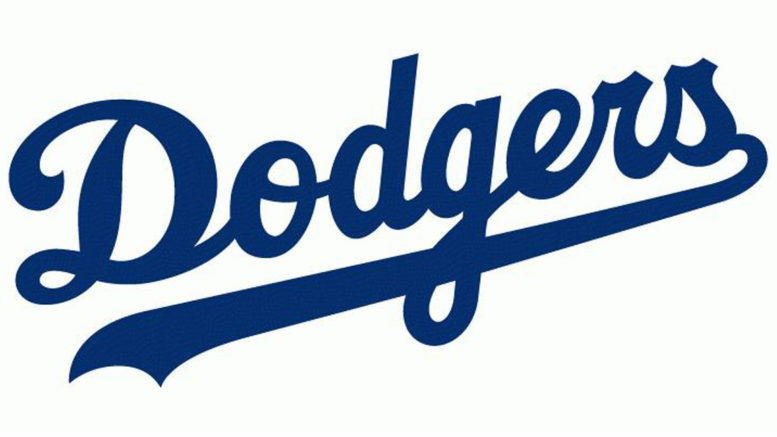If you’ve been reading this blog a while, you know that I love to beat up Time Warner Cable. Their customer service is always poor, their equipment is consistently behind the times, and their internet service frequently fails to deliver. You’d think I have a vendetta against them. Folks, I do have a lot of personal experience with this company, but it’s nothing personal – I just report what I see.
One of my favorite things to report is how Time Warner Cable spent over eight billion dollars for rights to carry Los Angeles Dodgers games, a price so high that they could not possibly make money by licensing these games to other providers. Their SportsNet LA channel is now carried by a few other cable systems in addition to Time Warner Cable, but other providers (notably DIRECTV, whose West Coast HQ is near the Los Angeles airport) have refused to pay. There have been varying reports of the prices being charged for this one channel, but every report places it higher than the cost being charged for ESPN, a full-time channel with national appeal.
This is a special year for the Dodgers, a team that admittedly has had trouble finding a loyal fan base even in its home city. While the team itself has been up and down, their on-field success marred by off-field crime allegations, Californians are united in their love for the Dodgers’ old-school announcer, Vin Scully. Mr. Scully is one of a rapidly vanishing breed of announcers dating back to the second world war, whose knowledge of the game, loyalty to the team and smooth delivery have kept generations listening. Whether or not you care about the Dodgers, it’s likely that you’re a Scully fan. I know I am.
It therefore becomes extremely poignant that the majority of people in the Dodgers’ service area cannot hear his final reports. Some are outside of a Time Warner Cable service area and others simply are unwilling to put up with TWC’s poor service in order to hear the games.
Time Warner Cable’s hardline position seems to be softening, according to an article in The Los Angeles Times.. This article claims that Time Warner Cable is offering a one-year contract for $3.50 per subscriber per month for SportsNet LA, a drop of about 30% depending on what number you believe that they’ve been offering it for before. This puts the channel’s price more in line with others, although it’s still quite high for a channel without much nationwide appeal. (For reference, the most expensive regional sports network is YES, the Yankees channel, which serves a team with a far greater appeal.)
Will DIRECTV take the deal?
This power move seems designed to drive DIRECTV to the table. DIRECTV is believed to have about 5 million subscriber households in the Dodgers’ service area which reaches throughout Southern and Central California and into Nevada. This move would save the company millions, but believe it or not, adding SportsNet LA even at this reduced price could pencil out to $210 million per year. That’s probably a savings of $100 million per year but folks let’s not kid ourselves these are big numbers no matter how you slice it. DIRECTV has maintained that the Dodgers’ appeal just isn’t that big and they certainly have proven their point with increasing subscriber numbers and profits the last couple of years. It seems like many DIRECTV customers just don’t care that they can’t get Dodgers baseball.
There are two big hurdles still to conquer: DIRECTV’s management has consistently said they want SportsNet LA to be available on an a la carte basis; they claim most subscribers don’t want it and don’t want to pay extra for it. The other issue is that the special pricing Time Warner Cable is offering is only good for the 2016 season and this could potentially drive DIRECTV and others to pay much higher rates in the future.
(To which I say, it’s ironic that even DIRECTV doesn’t like when people offer teaser rates to lock you into long-term contracts. Draw your own conclusions there.)
Time Warner Cable claims they’ve lost $100 million already on SportsNet LA, to which I certainly hope no one is crying big tears. They got themselves into this mess with a contract that ridiculously overvalues the Dodgers, and whether or not they lose money is certainly up to them. As the company looks forward to possibly merging with another pay-TV conglomerate (the current suitor is Charter) they’ll be doing all they can to stave off oblivion as their core business evaporates in the face of superior offerings from AT&T and others.
In the new world of communications, the companies that will win are the ones that offer the most services, not the most channels. DIRECTV saw this coming several years ago which is why they stopped paying exorbitant fees to every “Tom, Dick and Harry” new channel that came along. They got a lot more selective with channel adds, looking at only those channels with enough appeal to balance out their prices. In the meantime, the marketplace is now looking to companies that combine wireless service, 50Mbps+ internet, pay-TV and to a lesser extent land line phone service in attractive bundles. This is a world where Time Warner Cable just can’t compete.
I’ve repeatedly suggested that as part of any merger, Time Warner Cable should spin off its SportsNet LA and TWC SportsNet properties (and their Spanish-language affiliates) and let that part of the business enter a controlled bankruptcy which would allow all parties involved to renegotiate. This would eliminate some of the most ill-conceived contracts in TV history and potentially open up other options for sports-starved Californians. That move wouldn’t come fast enough to let the region hear the last calls from the storied Mr. Scully, but it would at the very least give some hope for the future.





